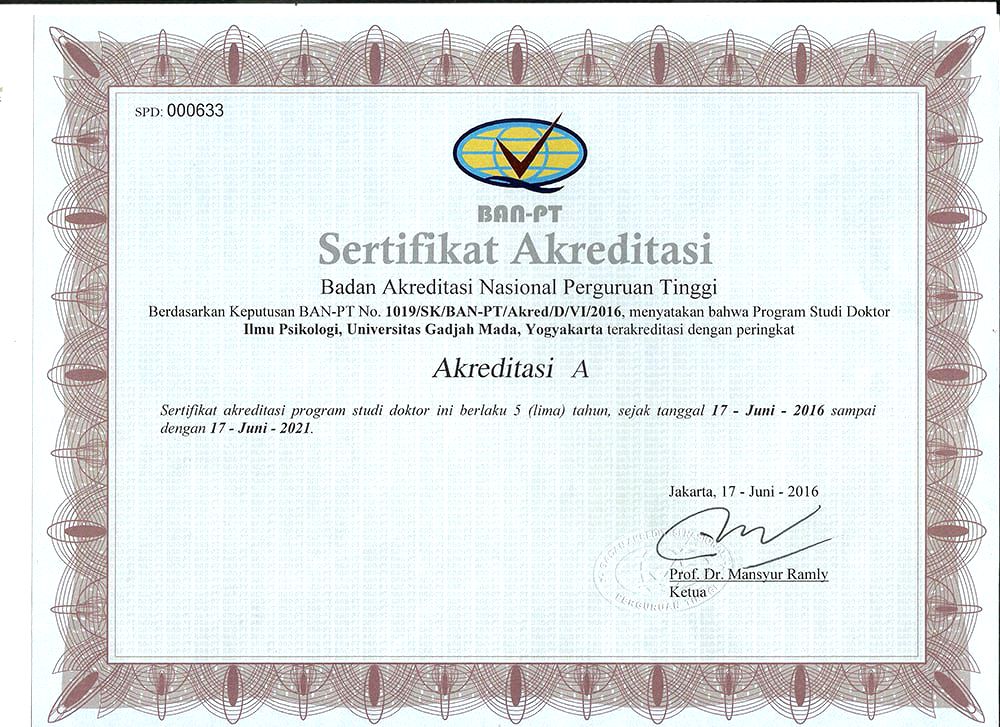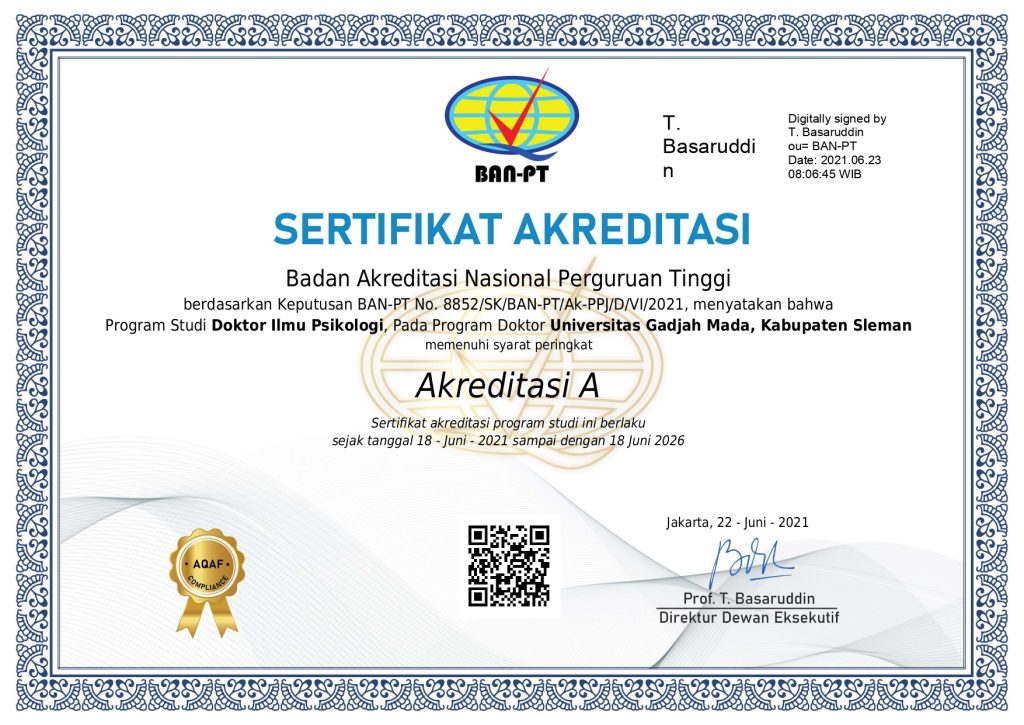The doctoral education program in psychology has been conducted since before the establishment of the Faculty of Psychology at Universitas Gadjah Mada (UGM). In 1959, UGM graduated Dr. Busono Wiwoho, with Prof. Kurt Danziger as his supervisor. To date, the Doctoral Program in Psychology has graduated more than 175 doctorate holders. Most alumni work in the academic field. Some notable alumni who have made significant contributions to the development of psychology in Indonesia include:
Prof. Dr. Siti Rahayu Haditono (Professor at UGM, graduated in 1979)
Prof. Dr. Soetarlinah Sudkadji (Professor at UI, graduated in 1984)
Prof. Dr. Yusti Probowati (Professor at UBAYA, graduated in 2001)
Prof. Dr. Suryanto (Professor at UNAIR)
Prof. Dr. H.R. Partino (Universitas Cenderawasih)
Prof. Dr. M. Djufri (UN Makassar, alumni of 2006)
It is no exaggeration to say that the Doctoral Program in Psychology has played a major role in advancing psychology as a science and profession in Indonesia.
Since the implementation of the national higher education accreditation system (BAN-PT), the Doctoral Program in Psychology has received an A accreditation rating. As part of continuous development efforts, the 2020 Curriculum was introduced in the 2020/2021 academic year.
Highlights of the 2020 Curriculum
The curriculum is designed with a focus on producing graduates who can publish research findings in high-impact international scientific journals.
Upon graduation, new doctorate holders must have at least two (2) publications in internationally recognized scientific journals.
The learning process integrates structured coursework and experiential learning. Under the guidance of the Promoter Team, students can determine their own learning strategies and paths.
All structured learning activities are conducted through intensive coursework, meaning students are not bound by the regular semester learning cycle. Participation can also be through sit-in programs in undergraduate or postgraduate courses, either at the Faculty of Psychology or other faculties within UGM. Experiential learning includes Teaching Internships, Student Research Supervision Internships, and Editorial Journal Internships.
Students can choose from one of the Learning Tracks (JP): JP Fresh Graduate, JP Teaching Experience, JP Research Methodology Experience, JP Publication Experience
There are seven (7) specialization fields, namely:
- Organizational Change and Development
- Clinical Psychology
- Mind, Brain, and Performance
- Cognitive, Emotional, and Social Development Across Lifespan
- Social Relations
- Statistics and Measurement
- Educational Psychology
Vision
To establish a pioneering, world-class doctoral program in psychology that is
distinguished for its innovation and excellence, committed to serving the nation and
humanity, and deeply rooted in the cultural values of the nation as embodied in
Pancasila.
Mission
To produce graduates who are equipped to conduct cutting-edge research in
psychology, become leaders in their respective fields, and compete successfully on
national, regional, and international stages.
Goals
As the operational elaboration of its vision and mission, the Doctoral Program aims to:
Provide high-quality higher education to produce excellent and competent graduates
Develop research that serves as a national reference, environmentally conscious,and responsive to societal, national, and state issues, grounded in local excellence values.
Advance the application of psychological science to promote community self-reliance and sustainable well-being.
Implement governance that is equitable, transparent, participatory, accountable, and
Integrated across units to support the effective and efficient use of resources.
Foster strategic, synergistic, and sustainable collaborations with partners.
Quality Assurance


